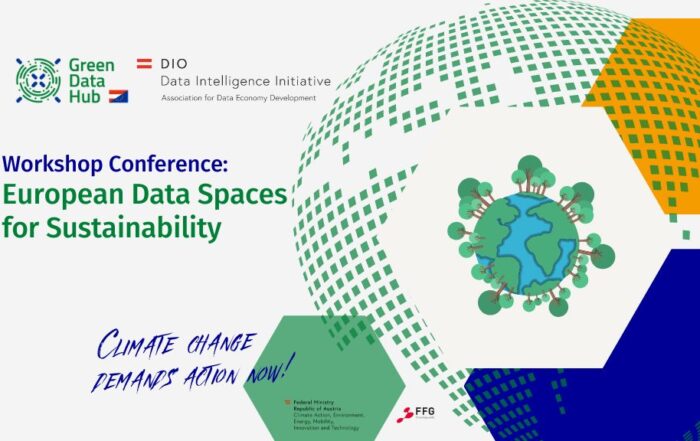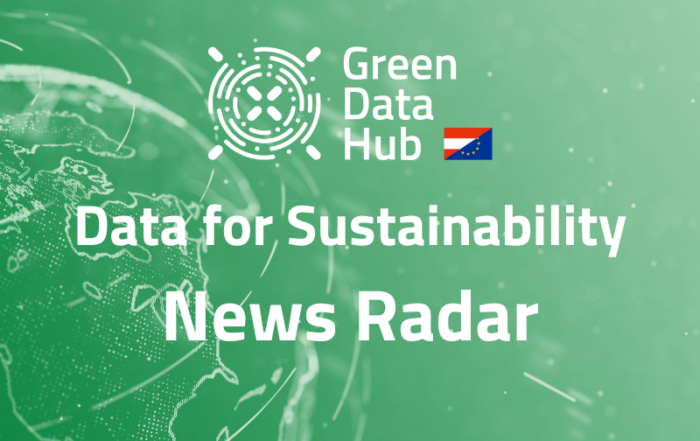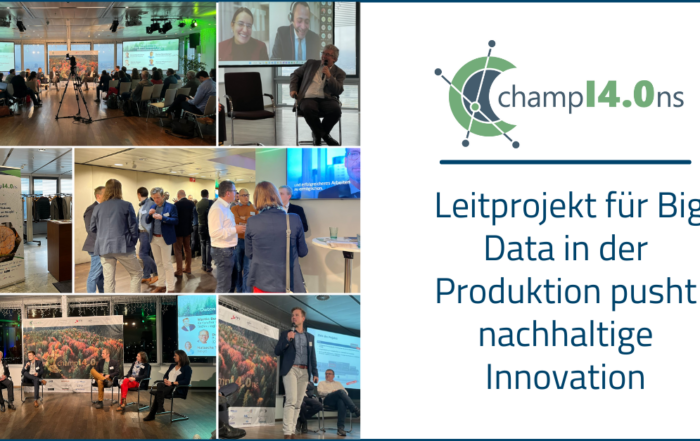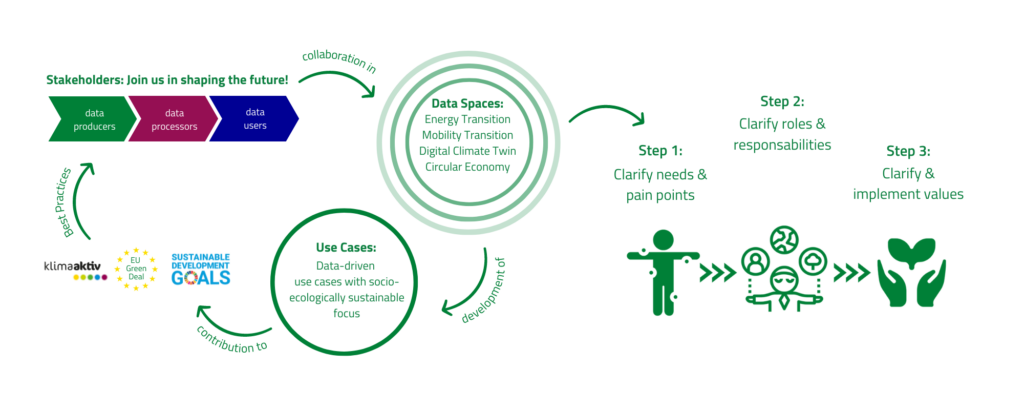Recent activities in Data for Sustainability:
GDH Workshop Conference: European Data Spaces for Sustainability
Our goal is to develop solutions that enable collaboration between European markets and across domains in European Data Spaces for Sustainability to fight climate change with data. You are essential for the solution to [...]
“Practical guide on SDGs” provides recommendations for action on sustainability aspects in the sports and energy sectors
In the course of the project "SDG Striker", the Energy Institute at JKU Linz aims to increase organizational capacities for good governance in mass sports organizations by supporting the implementation and communication of the [...]
champI4.0ns: Lead project for big data in production pushes sustainable innovation in DE/AT
On November 17, the champI4.0ns consortium and its guests met high above the rooftops of Vienna for the public kickoff of the project. This gave interested parties, network partners, funding bodies and funding processors [...]
Green Data Hub: Let’s fight climate crisis with Data Spaces together!
Climate change, energy and mobility transition: These challenges determine our present and shape our future. They can only be mastered and their risks managed if we break new ground and use new tools. Data is part of the solutions we need for a sustainable future.
Data needs to be better and more standardized in its collection and exchange. Personal data must be managed more sovereignly and stored more securely. Machine data needs to be transferred more securely and shared in a value-added way.
The Green Data Hub is the platform for Austrian and European actors to build a data service ecosystem for Green and Sustainable Data.
The Green Data Hub has a mandate from the Federal Ministry for Climate Protection, Environment, Energy, Mobility, Innovation and Technology (BMK) to create a sustainable European data service economy that enables the implementation of the climate goals, the energy transition and the mobility transition. To this end, we network data-producing, data-processing and data-using stakeholders from these sectors with those from the circular economy or from Climate Change & Risk Mitigation.
The goal is to connect Austrian and European stakeholders and to exchange and disseminate corresponding use cases.
After all, the pooling and shared, as well as collaborative, use of data makes it possible to tackle our societal as well as climate and environmental policy challenges. Therefore, Austria and the BMK, as well as the European Union, strive for the creation of a European data economy and a “green” European data space.
More detailed information in the Green Data Hub folders
In the following folders, we have summarized how collaboration in the Green Data Hub works on an organizational and technological level:
How do we build Data Spaces for Sustainability together with you?
How do we build Data Spaces for Sustainability together with you?
Based on collaborative, sovereign, and secure data use in Data Spaces, the Green Data Hub develops data-driven use cases for contributing to climate goals.
The experience of the Data Intelligence Initiative (DIO) suggests 3 steps to achieve this goal:
1. step: Identify real pain points
2. step: Clarify roles and responsibilities
3. step: Clarify and implement values




